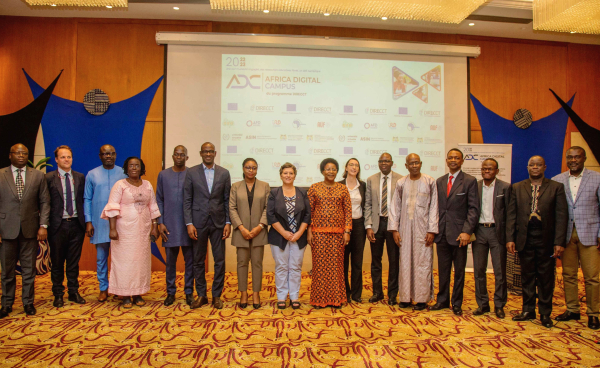Many African countries have embraced remote education to address the challenges related to education in their education systems. However, the unavailability of infrastructure and advanced services that would enable easy access to remote learning remain major issues.
On Tuesday, October 25, Benin officially launched the Africa digital Campus project. The consortium agreement for the implementation of this project was signed by the Institute of Research for Development (IRD), the Agence Universitaire de la Francophonie (AUF), the French Development Agency (AFD), the Virtual University of Burkina Faso and the Agency for Information Systems and Digital (ASIN).
The project, funded by AFD and carried out by IRD and the West and Central African Research and Education Network (WACREN) in partnership with the AUF, aims to promote the continuity and quality of higher education in West Africa by improving local universities’ network infrastructure and e-learning offering.
"In its pilot phase, the Africa Digital Campus project will allow the deployment of distance learning by strengthening the e-learning offer of two universities in West Africa: the Virtual University of Burkina Faso (UVBF) and the National Institute of Industrial Technology of Lokossa (INSTI), Benin,” the Beninese government explains.
The two-year project will strengthen the online training offer, the development of digital infrastructure, and access to connectivity within the two targeted higher education institutions in a post-Covid-19 context.
It is in line with the Beninese government’s plan to develop digital technologies to improve higher education. It will impact a thousand students in the country. The project complements government initiatives such as the Beninese Education and Research Network (RBER). In its pilot phase, the RBER allowed the interconnection of ten universities with services such as connectivity, IP telephony, and videoconferencing; and the e-Learning project, in its pilot phase.
Samira Njoya



















